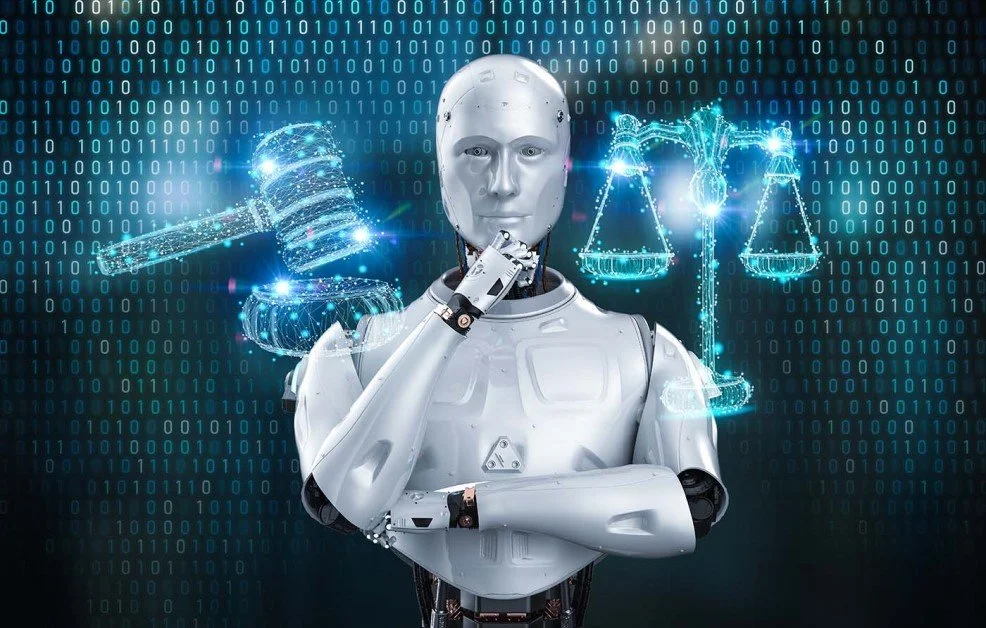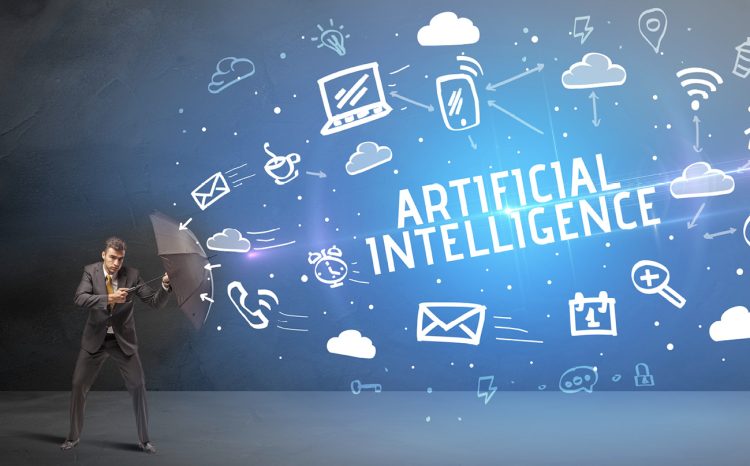Introduction
The legal industry is one of the most traditional sectors in the world. However, over the last few years, there has been a growing shift towards technology and automation to improve various aspects of legal work. Artificial intelligence (AI), in particular, is emerging as a key player in this transformation. From streamlining routine tasks to aiding lawyers in making more informed decisions, AI is changing the way legal professionals work, helping them handle cases more efficiently, accurately, and cost-effectively.
In this article, we will explore how AI is revolutionizing the legal sector, examining its applications, benefits, and the challenges it presents. We will also discuss specific tools and platforms that have been developed to improve case handling, legal research, document review, and even prediction of case outcomes. Furthermore, we will look at how AI contributes to enhancing client experiences and overall operational efficiency in law firms and legal departments.
Section 1: The Role of AI in the Legal Industry
1.1. Overview of Artificial Intelligence in Law
Artificial Intelligence refers to the simulation of human intelligence processes by machines, particularly computer systems. These processes include learning, reasoning, problem-solving, and perception. In the legal industry, AI tools utilize these abilities to assist lawyers, paralegals, and legal professionals in performing their tasks more efficiently.
The main functions AI serves in the legal industry include:
- Document Review and Legal Research: AI-powered software can analyze legal documents quickly and accurately, saving time and reducing errors.
- Contract Analysis and Drafting: AI tools help generate, review, and even negotiate contracts by identifying key clauses and offering suggestions for improvement.
- Case Prediction: AI can assist in predicting the likely outcomes of legal cases based on historical data, helping legal professionals make better strategic decisions.
- Automation of Repetitive Tasks: Routine administrative tasks, such as managing schedules, billing, and document organization, can be automated using AI technologies, which reduces administrative burdens and enhances operational efficiency.
1.2. Key Technologies Behind AI in Law
- Natural Language Processing (NLP): NLP enables computers to understand, interpret, and generate human language. In legal applications, this is used for analyzing legal texts, extracting relevant information, and summarizing large volumes of documents.
- Machine Learning (ML): Machine learning allows AI systems to learn from data, improve over time, and identify patterns. This is used in predictive analytics and decision-making processes.
- Data Analytics: AI systems in the legal industry use big data analytics to sift through large volumes of data, identify trends, and provide actionable insights that can help in case handling and decision-making.
Section 2: Applications of AI in Legal Case Handling
2.1. AI for Legal Research
One of the most time-consuming tasks for legal professionals is conducting research. Lawyers often have to sift through thousands of case files, legal documents, statutes, and precedents to find relevant information for their cases. AI-powered legal research platforms are designed to automate this process, making it faster and more accurate.
2.1.1. Tools and Platforms for Legal Research
- ROSS Intelligence: Built on IBM Watson’s cognitive computing system, ROSS Intelligence assists lawyers in conducting legal research by understanding natural language queries and providing relevant results from a vast database of case law.
- Casetext: Casetext is an AI-driven legal research platform that leverages NLP to help attorneys find relevant case law, statutes, and other legal documents in a fraction of the time.
- Westlaw Edge: Westlaw’s AI-powered platform provides advanced research tools, predictive analytics, and intelligent case recommendations to improve research efficiency and accuracy.
2.2. Document Review and Contract Analysis
Document review is another critical task in the legal field. Legal professionals spend a significant amount of time reviewing contracts, agreements, and case files to identify key clauses, inconsistencies, or legal risks. AI has been designed to accelerate this process, improve accuracy, and reduce the time spent on routine tasks.
2.2.1. AI Tools for Document Review
- Kira Systems: Kira Systems uses AI to review contracts and documents by identifying key clauses, terms, and risks. It can analyze contracts, such as non-disclosure agreements or leases, in seconds and flag potential issues that require human attention.
- Relativity: Relativity provides AI-powered eDiscovery tools that help law firms and corporate legal departments streamline document review processes. It uses machine learning to assist in identifying key documents for legal cases and improves the accuracy of review workflows.
- Luminance: This AI tool is designed for contract analysis, particularly in mergers and acquisitions. It uses machine learning to understand the context of legal contracts and helps lawyers identify key terms, clauses, and risks.
2.3. Predictive Analytics in Legal Case Outcomes
One of the more advanced applications of AI in the legal field is predictive analytics. AI systems can analyze historical legal data to predict the likely outcome of cases, helping lawyers to devise better strategies and provide clients with more informed expectations.
2.3.1. Tools for Predicting Legal Case Outcomes
- Premonition: Premonition uses AI to analyze court data and predict the outcomes of legal cases based on past judgments. It evaluates the track record of judges, courts, and law firms to help legal professionals make data-driven decisions.
- Lex Machina: Lex Machina leverages AI to provide legal analytics, helping law firms to predict case outcomes, identify trends in specific practice areas, and determine the behavior of judges and opposing counsel.
- CaseText’s CoCounsel: This platform offers AI-based litigation support by predicting case outcomes based on data from similar cases. It helps attorneys to assess whether pursuing a particular case is worthwhile.

Section 3: Benefits of AI in the Legal Industry
3.1. Time and Cost Efficiency
By automating routine tasks such as document review, legal research, and contract analysis, AI tools can significantly reduce the time spent on these tasks. This results in cost savings for clients and higher productivity for legal teams.
- Speed: AI can process and analyze large volumes of legal data within seconds, much faster than a human lawyer could do manually. This enables lawyers to complete tasks like document review and case research in a fraction of the time.
- Cost Reduction: Since AI can automate many time-consuming tasks, law firms can reduce the number of billable hours spent on routine work, thus lowering costs for clients.
3.2. Accuracy and Precision
Human error is an inherent part of manual legal work. Whether it’s overlooking key details in contracts or making incorrect assumptions during legal research, mistakes can have significant consequences in the legal field. AI systems, however, are highly accurate and minimize the risk of errors in tasks such as data analysis, document review, and case prediction.
- Error Reduction: AI tools reduce the risk of human error by analyzing data without biases, ensuring consistency and improving the quality of work.
- Improved Legal Insights: AI-driven tools use data analytics to uncover trends, making it easier for lawyers to uncover new legal insights and improve their strategies.
3.3. Improving Client Satisfaction
AI technology also has a significant impact on client service. With AI automating administrative tasks and enhancing case management, lawyers can spend more time on strategic aspects of a case, resulting in better outcomes for clients. Furthermore, the faster and more accurate services provided by AI can lead to greater client satisfaction.
- Faster Response Times: Clients benefit from faster communication and responses from law firms, as AI-powered systems streamline workflows and support efficient case management.
- Transparency: AI tools that track case progress and analyze the likelihood of success can provide clients with clearer insights into the legal process and outcomes.
Section 4: Challenges and Ethical Considerations
While AI holds immense potential for the legal industry, it also brings with it certain challenges and ethical considerations.
4.1. Data Privacy Concerns
AI systems in the legal industry rely on vast amounts of data, including sensitive client information and case details. Ensuring that AI tools comply with data privacy regulations, such as GDPR and other local laws, is critical.
4.2. The Need for Human Oversight
While AI can assist with data analysis and decision-making, it is essential that human professionals retain oversight of the final decisions. AI systems are tools that should complement, not replace, the judgment and expertise of experienced legal professionals.
4.3. Job Displacement Concerns
As AI becomes more integrated into the legal sector, there are concerns about job displacement, particularly for junior lawyers, paralegals, and administrative staff. While AI will undoubtedly automate many tasks, it is likely to create new roles in data analysis, AI management, and legal technology development.
Section 5: The Future of AI in the Legal Industry
5.1. Advancements in AI Technology
As AI technology continues to evolve, its applications in the legal industry will become more sophisticated. Future developments may include more advanced predictive analytics, AI-driven negotiations, and even fully automated legal processes for certain types of cases.
5.2. Embracing AI for Innovation
For law firms and legal professionals, the key to thriving in an AI-powered world is to embrace innovation and integrate AI tools into their workflow. By adopting AI-driven technologies, law firms can stay ahead of the competition and offer better services to their clients.
Conclusion
Artificial intelligence is reshaping the legal industry by improving efficiency, reducing costs, enhancing accuracy, and transforming how legal work is performed. From automating mundane tasks like legal research to providing predictive analytics and case predictions, AI is helping legal professionals to make better decisions and improve client satisfaction.
However, AI’s integration into the legal field is not without challenges. Ethical concerns, data privacy issues, and the need for human oversight will continue to shape how AI is used in law. Nevertheless, the potential benefits AI offers to the legal industry cannot be ignored. As technology continues to advance, it is clear that AI will play an increasingly important role in shaping the future of law.











































